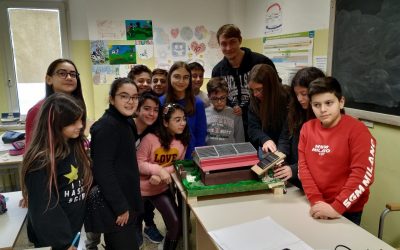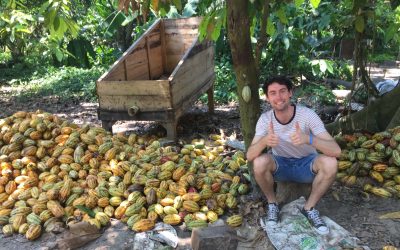 This is not another Corona-blog. However, as I am writing this piece, I cannot stop thinking about the current pandemic that is happening in the world. Almost everyone in the world has been affected, whether it is large or small. Here in the Netherlands, the biggest change people have to adapt to at the moment is keeping their distance from one another (1,5 meters). However, even though this change is hard, not very pleasing and maybe even disappointing, there is a difference in how you can cope with these changes. Just like having to deal with the Corona situation, we have to deal with other situations that turn out less pleasing as we wanted them to be. To help you in such situations, I would like to tell you my tips on how to deal with disappointments.
This is not another Corona-blog. However, as I am writing this piece, I cannot stop thinking about the current pandemic that is happening in the world. Almost everyone in the world has been affected, whether it is large or small. Here in the Netherlands, the biggest change people have to adapt to at the moment is keeping their distance from one another (1,5 meters). However, even though this change is hard, not very pleasing and maybe even disappointing, there is a difference in how you can cope with these changes. Just like having to deal with the Corona situation, we have to deal with other situations that turn out less pleasing as we wanted them to be. To help you in such situations, I would like to tell you my tips on how to deal with disappointments.
Expectation setting
 First of all, feeling disappoinment is often directly related to your expectations. Some people might say that you shouldn’t set your expectations high for important things. However, I don’t agree. I believe that it is better to set high expectations in general and risk the chance to get disappointed than to set low expectations but don’t feel satisfied once you do achieve it. However, make sure that you set your expectations in such a way that they are achievable. When writing your thesis, for example, it is good to set high expectations, to make sure that you give everything you can. However, don’t expect to get a 9,5 since this is probably very unrealistic.
First of all, feeling disappoinment is often directly related to your expectations. Some people might say that you shouldn’t set your expectations high for important things. However, I don’t agree. I believe that it is better to set high expectations in general and risk the chance to get disappointed than to set low expectations but don’t feel satisfied once you do achieve it. However, make sure that you set your expectations in such a way that they are achievable. When writing your thesis, for example, it is good to set high expectations, to make sure that you give everything you can. However, don’t expect to get a 9,5 since this is probably very unrealistic.
It’s okay to feel sad
Whenever you have to deal with disappointments, remember that it is okay to feel a bit down that things didn’t go the way you imagined them. Of course, you will have to deal with the situation eventually, but it is okay to feel sad for some time. Acknowledging that I can take the time to be sad about something helps me to calm down. Another tip is to keep in mind that without these disappointments, the positive things in life won’t be perceived as good. Or in other words, without downs in your life, there are no ups.
Communicate your feelings

So what else can help you to deal with these situations? The golden tip for me is that communication is key. As with many other things in life, communication is very, very important. It does not matter whether the disappointing situation is relatively small or big. It generally always helps if I can share my feelings with other people. These people will probably comfort you which will already result in looking at the situation more positively. However, try to clearly explain what you are feeling. Instead of telling people what happened and saying that you are sad or disappointed will help you. This will help you to search for a solution.
Always look at the bright side…
Last but not least, try to look at the situation as positively as possible. I know this is hard, but once you’ve let yourself be sad for a while, try to think about how to solve the problem and look at the situation from a more positive perspective.
This post was written by AIESEC in the Netherlands. We offer international voluntary projects and professional internships with the aim of developing leadership in youth.













